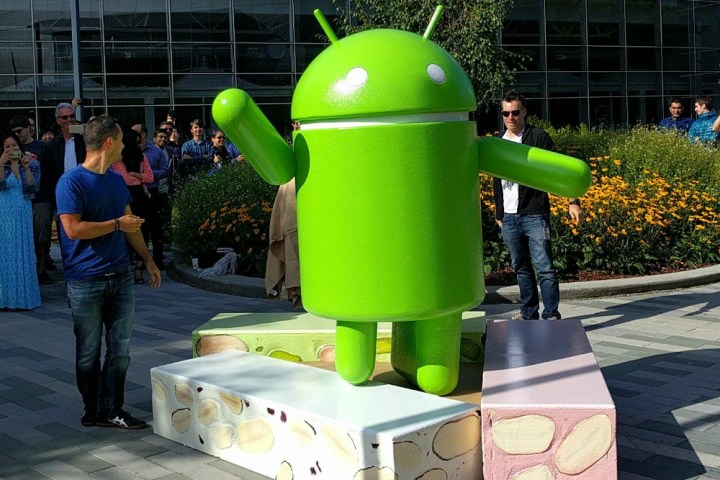
“The Commission’s case is based on the idea that Android doesn’t compete with Apple’s iOS,” writes Kent Walker, a senior vice president and general counsel at Google. “We don’t see it that way. We don’t think Apple does either. Or phone makers. Or developers. Or users. In fact, 89 percent of respondents to the Commission’s own market survey confirmed that Android and Apple compete. To ignore competition with Apple is to miss the defining feature of today’s competitive smartphone landscape.”
As to Android, Google says, “no manufacturer is obliged” to pre-load any Google apps — the Google suite is offered so that users will get a “familiar set of basic services,” but manufacturers can pre-install rival apps as well. The Mountain View, California company says that while the European Commission doesn’t think Google should offer any pre-installed services, competitors “not only do the same, but they allow much less choice in the apps that come with their phones.”
Through a variety of GIFs, the search giant shows off how open to choice Android is when compared to Windows and iOS. The firm contends that 39 out of 39 pre-installed apps on the iPhone are from Apple, and that 39 out of 47 pre-installed apps on Windows 10 mobile are from Microsoft. On the Samsung Galaxy S7, however, only 11 out of 38 pre-installed apps are from Google.

But the European Commission nevertheless has a problem with Google Play, namely that it’s a must-have on Android devices produced by other manufacturers. This gives Google an edge in its bargaining position when it comes to deploying its services on these devices. Google’s counterargument is that the Play Store carriers plenty of competing, third-party apps that are thriving.
For example, apps like Snapchat, Dropbox, and Spotify directly compete with some of Google’s services that come pre-installed, like Play Music and Drive, yet they manage to pull in millions of users on the Android platform.
“Our apps suite approach explicitly preserves users’ freedom to choose the apps they want on their phones,” Kent writes.

Google also says it works with manufacturers to ensure a minimum “level of compatibility” so that developers can ensure their apps will work on a multitude of devices — so that the operating system isn’t privy to fragmentation.
“That flexibility makes Android vulnerable to fragmentation, a problem that plagued previous operating systems like Unix and Symbian,” says Kent. “When anyone can modify your code, how do you ensure there’s a common, consistent version of the operating system, so that developers don’t have to go through the hassle and expense of building multiple versions of their apps?”
Along with maintaining a base level of compatibility, the search giant says it also offers all its services for free, without any licensing fees, and that’s a benefit that affects phone makers and consumers.
With Google’s response in, we’ll have to wait for the European Commission to look it over and make a decision.

